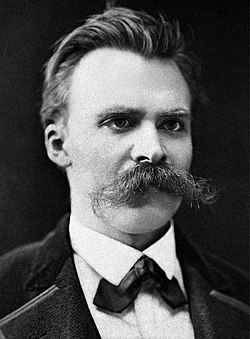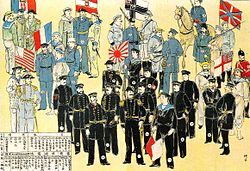| << | August 1900 | >> | ||||
|---|---|---|---|---|---|---|
| Su | Mo | Tu | We | Th | Fr | Sa |
| 1 | 2 | 3 | 4 | |||
| 5 | 6 | 7 | 8 | 9 | 10 | 11 |
| 12 | 13 | 14 | 15 | 16 | 17 | 18 |
| 19 | 20 | 21 | 22 | 23 | 24 | 25 |
| 26 | 27 | 28 | 29 | 30 | 31 | |




The following events occurred in August 1900:
Contents
- August 1, 1900 (Wednesday)
- August 2, 1900 (Thursday)
- August 3, 1900 (Friday)
- August 4, 1900 (Saturday)
- August 5, 1900 (Sunday)
- August 6, 1900 (Monday)
- Tuesday, August 7, 1900
- August 8, 1900 (Wednesday)
- August 9, 1900 (Thursday)
- August 10, 1900 (Friday)
- August 11, 1900 (Saturday)
- August 12, 1900 (Sunday)
- August 13, 1900 (Monday)
- Tuesday, August 14, 1900
- August 15, 1900 (Wednesday)
- August 16, 1900 (Thursday)
- August 17, 1900 (Friday)
- August 18, 1900 (Saturday)
- August 19, 1900 (Sunday)
- August 20, 1900 (Monday)
- Tuesday, August 21, 1900
- August 22, 1900 (Wednesday)
- August 23, 1900 (Thursday)
- August 24, 1900 (Friday)
- August 25, 1900 (Saturday)
- August 26, 1900 (Sunday)
- August 27, 1900 (Monday)
- Tuesday, August 28, 1900
- August 29, 1900 (Wednesday)
- August 30, 1900 (Thursday)
- August 31, 1900 (Friday)
- References

